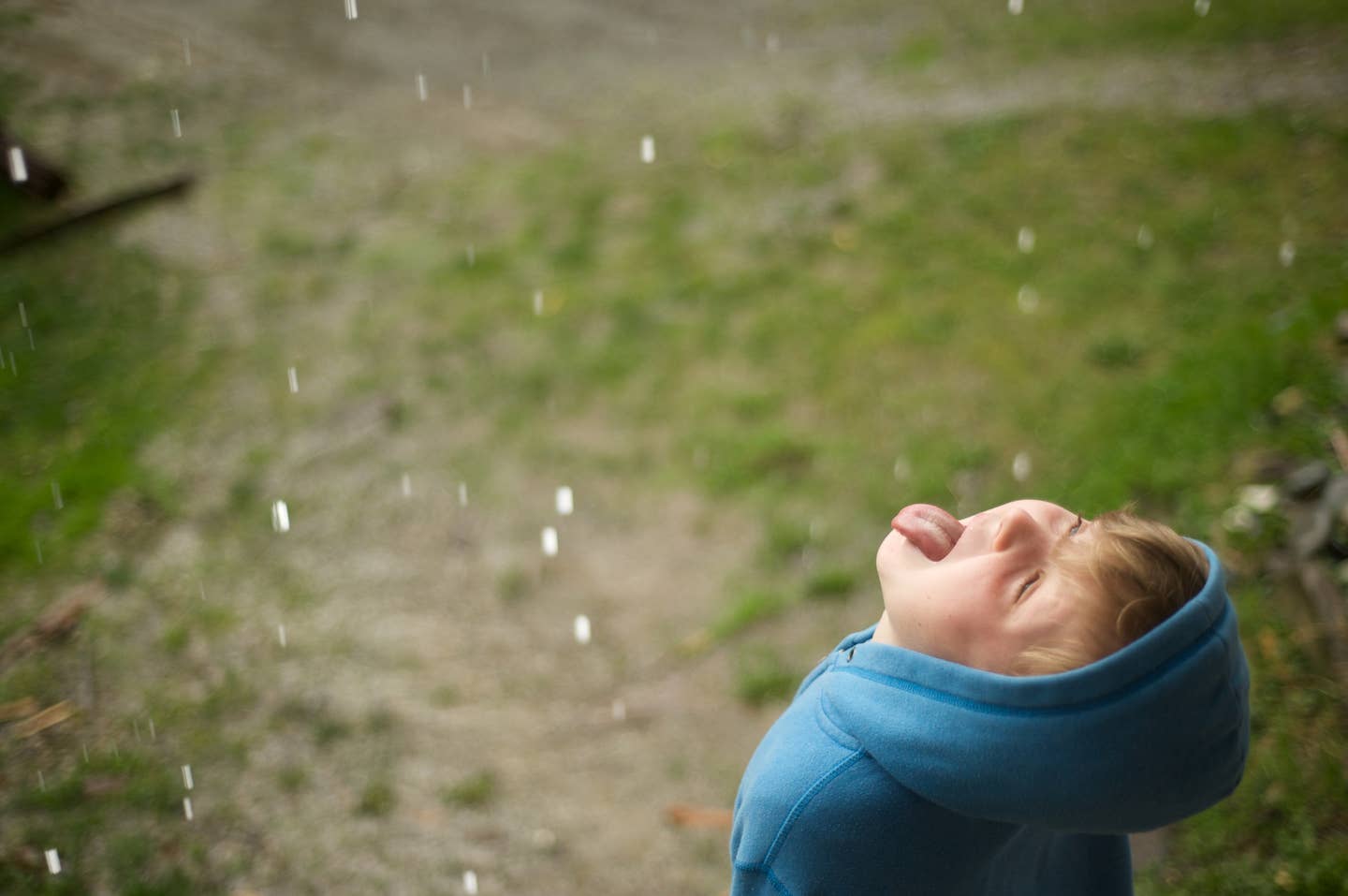
Rainwater is Unsafe to Drink No Matter Where You Live, According to New Study
When it rains, it pours ... toxic chemicals unsafe for human consumption. Remember when it would rain and you could hold your tongue out and catch raindrops? It's ill-advised nowadays, according to new research from the University of Stockholm. A group of researchers measuring the potability of rainwater has found that the water that falls from the sky (and once filled tanks, aqueducts, reservoirs), and other water systems, now contain harmful chemicals and toxins that are undrinkable.
This is now true almost everywhere on Earth, according to the new findings, including as far away from human pollution as Antarctica. The most prevalent toxins are what's being called "forever chemicals" since once they are released into the atmosphere they never go away, they just trade places from the rivers, streams, and oceans to be evaporated into the clouds where they wait until fully loaded to rain down upon us again. These forever chemicals include perfluoroalkyl substances (PFAS) and are 100 percent human-made chemicals that enter the air and water systems after they were first manufactured to be used in household and industrial cleaning products, as well as other chemicals.
Forever is a long time, but that's the appropriate name for these perfluoroalkyl molecules since they will never break down in the environment, for as long as we can expect to live. Rather depressing, if you ask us. Luckily there are ways we can combat this scary trend and here's why you can (and should) do it to lower the risk of more of these chemicals entering the atmosphere. First, avoid buying products that contain these types of toxins wherever possible. Here is a partial list of products that contain "forever chemicals" to keep on your radar or to take to the store and not buy, or at least avoid wherever possible.
Products that Contain "Forever Chemicals"
There are countless products that contain "forever chemicals," but scientists and researchers are most surprised to find the toxins showing up in raindrops, having made their way into the clouds by being evaporated from our larger water masses like the Atlantic Ocean.
Manufacturers use PFAS to make products that repel oil, heat, stain, or water such as Teflon or plastic coatings that line the inside of canned goods or other food containers, according to the CDC.
Items to avoid include food wrappers, electronics, cookware, containers, cosmetics, outdoor gear, and most items that have non-stick or stain-repellent features.
Cleanwateraction.org claims "every American tested has PFAS in their blood." The organization has published this list of products to watch out for:
- Food Packaging: pizza boxes, food wrappers, take-out containers, microwave popcorn bags, disposable trays, and bakery bags;
- Non-stick pans (Teflon)
- Firefighting foam
- Treated carpets, rugs, furniture textiles, window treatments, car seats
- Stain-proof and waterproof clothing
- Outdoor gear
- Umbrellas
- Personal care products like dental floss, mascara, foundation, menstrual underwear
- Artificial turf
- Medical equipment and masks
- Building products
- Some Personal protective equipment such as that used by firefighters
Just like most man-made toxic items, they're good for their intended purposes, but that's really it. "They're [PFAS] the best in that they're very useful at keeping things dry, keeping grease out of things," Arlene Blum, a biophysical chemist of the Green Science Policy Institute, told NPR. "But they're the worst because ... they never break down, and all of the ones that have been studied have been found to be harmful," she added.
How "Forever Chemicals" Impact Your Health
Exposure to "forever chemicals" are known to be endocrine disrupters, and can affect “every major organ in the human body,” Elsie Sunderland, associate professor of environmental science and engineering in the Department of Environmental Health at Harvard T.H. Chan School of Public Health, told WBUR. “So that is scary for me," she added.
Exposure to "forever chemicals" may lead to a higher risk of cancer, increased blood pressure, increased cholesterol levels, damage to the liver, fertility problems, and overall, a weak immune system, according to The Agency for Toxic Substances and Disease Registry.
How to Reduce "Forever Chemicals" in Everyday Activities
To limit your interactions with "forever chemicals" and other toxins, try to drink water from glass bottles and shop for organic produce, and now, avoid sticking your tongue out when it rains and slurping up a homemade snow cone in the wintertime. Experts also advise cooking at home instead of eating out but avoiding nonstick cookware when you can. They also suggest using water filters for drinking water.
Bottom Line: Avoid Chemicals That Get Into the Atmosphere, Cause Toxic Rain
You can't limit every chemical but if you know that some toxins get into the atmosphere and become "forever chemicals," since they stick around in one form or another until eternity, we can help clean up the planet. Till then, avoid drinking rain, since scientists say it's toxic.
More From The Beet






